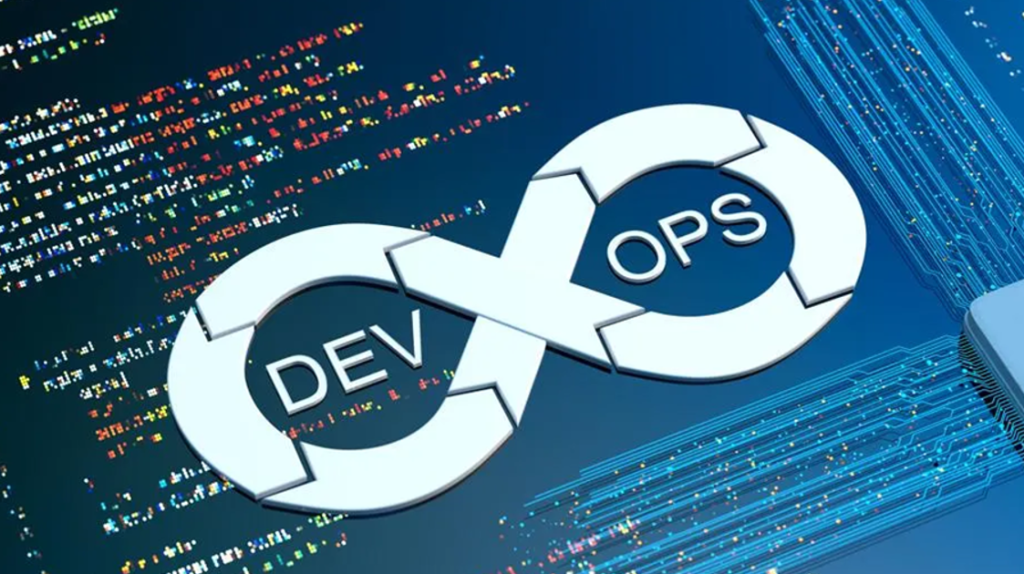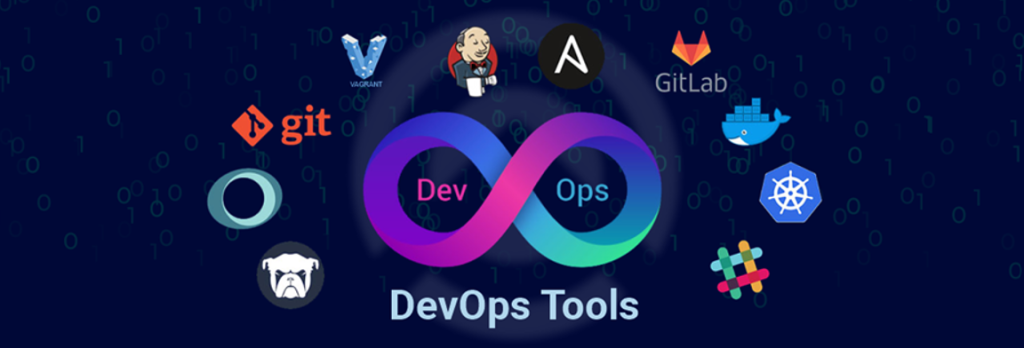Introduction
DevOps tool can be defined as an invaluable tool for the development and implementation of software solutions where simplicity, collaboration, and first- and second-level integration between development and operations are of paramount importance. All these tools may be used in some stage of the devOps life cycle, such as version control, deployment, and monitoring, among others.
With the right tools, organizational development can be improved, the quality of the products can be increased, and the time taken to deliver the products can be reduced. Selecting the right DevOps toolset is significant for ensuring that teamwork is optimized and consequent progress is reached.
DevOps Tools – An Overview

DevOps tools are relevant and helpful in maintaining high levels of transparency, automation, and collaboration within an organization’s value stream. These tools promote effective communication and coordination of work, the sharing of information, and the sharing of expertise in development, operation, security, and business. This makes the communication and sharing of knowledge among all the involved parties smooth, thus improving the delivery of the products.
When these tools are combined, organizations are able to bring technical development, operations, and security together across the business and at all stages of development, in line with industry best practices, and thereby encourage innovation throughout the product development process. The success of DevOps practices is heavily driven by the tools employed, hence the importance of selecting the correct tools for the team. DevOps Training programs are crucial in helping teams master these tools and practices, ensuring they are equipped to drive collaboration and innovation effectively.
Core Components of DevOps
DevOps can be described as a set of pillars that embody the best practices that can be used by organizations when it comes to implementing software development and IT operations. They are important for collaboration, automation, and the constant improvement of organizational processes.
Here are the key elements:
● Culture and Collaboration: DevOps also concentrates on the cultural changes where development and operations and other conspicuous teams should cooperate. It is also critical to understand that it is every employee’s responsibility, and everyone must trust one another.
● Automation: Things that were once done manually are minimized, and efficiency is increased by automation. It comprises the automatic test, building and delivering solutions, pipeline, infrastructure, and configuration.
● Continuous Integration (CI): Continuous integration means engineers integrating code changes several times a day into a shared repository that uses automated tests to detect problems.
● Continuous Delivery (CD): CD takes it a notch higher than CI by enabling the actual changes to be deployed to the production or staging environment to make sure that the software is always deployable.
● Microservices and Containerization: Microservices and applications such as Docker are some of the ways in which DevOps uses modularity to create scalability for applications.
● Infrastructure as Code (IaC): IaC helps to keep the systems in good order as it provides and manages infrastructure resources through code.
Top DevOps Tools

1. Version Control Tools
GitHub: GitHub is the top place to share scripts for collaboration, automation, continuous integration and delivery, and security tools.
Bitbucket: Bitbucket features include patch Jira and Trello integration, built-in CI/CD, and secure code management that is very tight.
GitLab: GitLab is an all-in-one software tool for rapid software delivery, including continuous integration and continuous development, security, and code quality management.
2. Container Management Tools
Docker: Docker is an open-source tool that provides lightweight and fast solutions to several processes involved in the development of the software development life cycle with the help of containerization.
Kubernetes: Kubernetes is a tool available in an open-source model that allows for the automation of deployment as well as the management of applications in containers.
Mesos: Mesos is a DevOps tool that is specifically used in the administration of computer clusters, irrespective of the current application, whether cloud-based or traditional.
3. Application Performance Monitoring Tools
Prometheus: A tool specifically designed for performance monitoring that is open-source and has a strong focus on reporting.
Dynatrace: Offers deep level observability, digital experience monitoring, and smart problem identification.
AppDynamics: Helps in providing real-time data on the performance of applications with the feature of smart analytics for troubleshooting.
4. Configuration and Server Performance Management Tools
Splunk: Translates and assesses across infrastructure and provides the functionality of machine learning for its alerts.
Datadog: Datadog is a SaaS-based tool for monitoring servers and applications for top-to-bottom visibility in cloud and hybrid infrastructure.
Sensu: Sensu is a cloud monitoring tool that is open source, has self-service work flows, and has options for integrated authentication.
5. Configuration Management Tools
Chef: Chef: Originally a tool for pushing configuration changes, now an automation and configuration management open source tool compatible with cloud systems.
Puppet: It applies infrastructure and centralized and intricate workflows, all of which make it especially suitable for use in large environments.
Ansible: Ansible is a basic tool to automate tasks between systems that eliminates repetitive jobs to perform configuration management and coordination.
6. CI / Deployment Automation Tools
Bamboo: Bamboo supports practicing continuous delivery by having features of automated builds, testing, and releases within the same process.
Jenkins: This is another open source platform for CI/CD, and it is well known for its ease of setting up and configuration.
IBM UrbanCode: An application release automation for continuous delivery across platforms software solution.
7. Test Automation Tools
Test.ai: AI-powered automation testing tool for faster app releases with better quality.
Ranorex: An all-in-one solution for automated testing, offering integration with CI servers and issue tracking tools.
Selenium: Primarily used for automating web applications, with components like WebDriver, IDE, and Grid.
8. Artifact Management Tools
Sonatype NEXUS: A repository manager that efficiently distributes parts and containers to developers.
JFRog Artifactory: A single source of truth for container images and packages across the DevOps pipeline.
CloudRepo: Manages, shares, and distributes private Maven and Python repositories with high availability.
9. Codeless Test Automation Tools
AccelQ: A leading codeless test automation tool that enforces modularity and reusability in test asset development.
QuerySurge: A continuous data testing solution integrated into the DevOps pipeline for quick validation and detailed analytics.
Appvance: An AI-powered autonomous testing platform that performs end-to-end testing with self-healing scripts.
Which DevOps Tools Are Right for Your Team?
Choosing the right DevOps tooling for your team depends on several factors:
● Project Management Needs: Implement tools that will help in sprint planning as well as the iterative model.
● Collaboration Features: Search for devices that will ensure the unity of the workers.
● Automation Capabilities: Make sure that the tool used is compatible with different types of automation and CI/CD.
● Version Control: Tools must provide the functionality of storing the configurations in the version control system for a track and rollback.
● Monitoring and Feedback: Tools must provide application and server usage analysis to recognize and solve problems as soon as possible.
How to Choose the Best DevOps Tools?
When selecting DevOps tooling, consider the following factors:
● Integration with Other Tools: Make sure, when selecting the tool, it is compatible with the existing systems.
● Robust API Support: APIs should be flexible to accommodate different tasks in an organization.
● Cross-Platform Support: The tool should be usable on different operating systems of the computer you are using and on different platforms.
● Customization and Usability: Focus on instruments that have to be easy to control and may be revised in compliance with the requirements of your team.
● Performance and Price: Evaluate the performance of the tool and check if it is worth the price that has to be paid for it.
Conclusion
DevOps tooling are used to support software development and operation so that teams can deliver high-quality software at a rapid pace. It is easily understandable that the right choice of instrumentation can greatly improve cooperation as well as processes’ total and partial organizing and optimizing.
By doing your due diligence on which aspects of your team must be considered and what particular tools offer, you can construct a strong DevOps triangle that will allow for effective integration, delivery, and continuous improvement.
FAQs
What is the tool for DevOps?
DevOps is not a single tool. It is a set of tools that align to various phases of the software development and delivery process such as version control (GIT), Continuous Integration and Delivery (Jenkins), and containerization (Docker and Kubernetes).
Is AWS a DevOps tool?
AWS is not a DevOps tool per se, but it provides a set of services that can be employed to leverage DevOps, some of them are AWS CodePipeline as a CI/CD tool, AWS CloudFormation for Infrastructure as Code and Amazon EC2 for elastic computing capacity.
What is DevOps used for?
DevOps can therefore be referred to as the practice which aims at refining the communication and integration between the software development and the IT operations in order to help the two functions deliver the software and associated features to the market more quickly and with better reliability.
Is Jira a DevOps tool?
Jira as a tool is not a DevOps tool but it is one of the most popular tools in a lot of DevOps teams, primarily to manage projects and track issues. It is quite compatible with other DevOps solutions such as Bitbucket and Bamboo.
I’m a DevOps/SRE/DevSecOps/Cloud Expert passionate about sharing knowledge and experiences. I am working at Cotocus. I blog tech insights at DevOps School, travel stories at Holiday Landmark, stock market tips at Stocks Mantra, health and fitness guidance at My Medic Plus, product reviews at I reviewed , and SEO strategies at Wizbrand.
Please find my social handles as below;
Rajesh Kumar Personal Website
Rajesh Kumar at YOUTUBE
Rajesh Kumar at INSTAGRAM
Rajesh Kumar at X
Rajesh Kumar at FACEBOOK
Rajesh Kumar at LINKEDIN
Rajesh Kumar at PINTEREST
Rajesh Kumar at QUORA
Rajesh Kumar at WIZBRAND

 Starting: 1st of Every Month
Starting: 1st of Every Month  +91 8409492687
+91 8409492687  Contact@DevOpsSchool.com
Contact@DevOpsSchool.com
